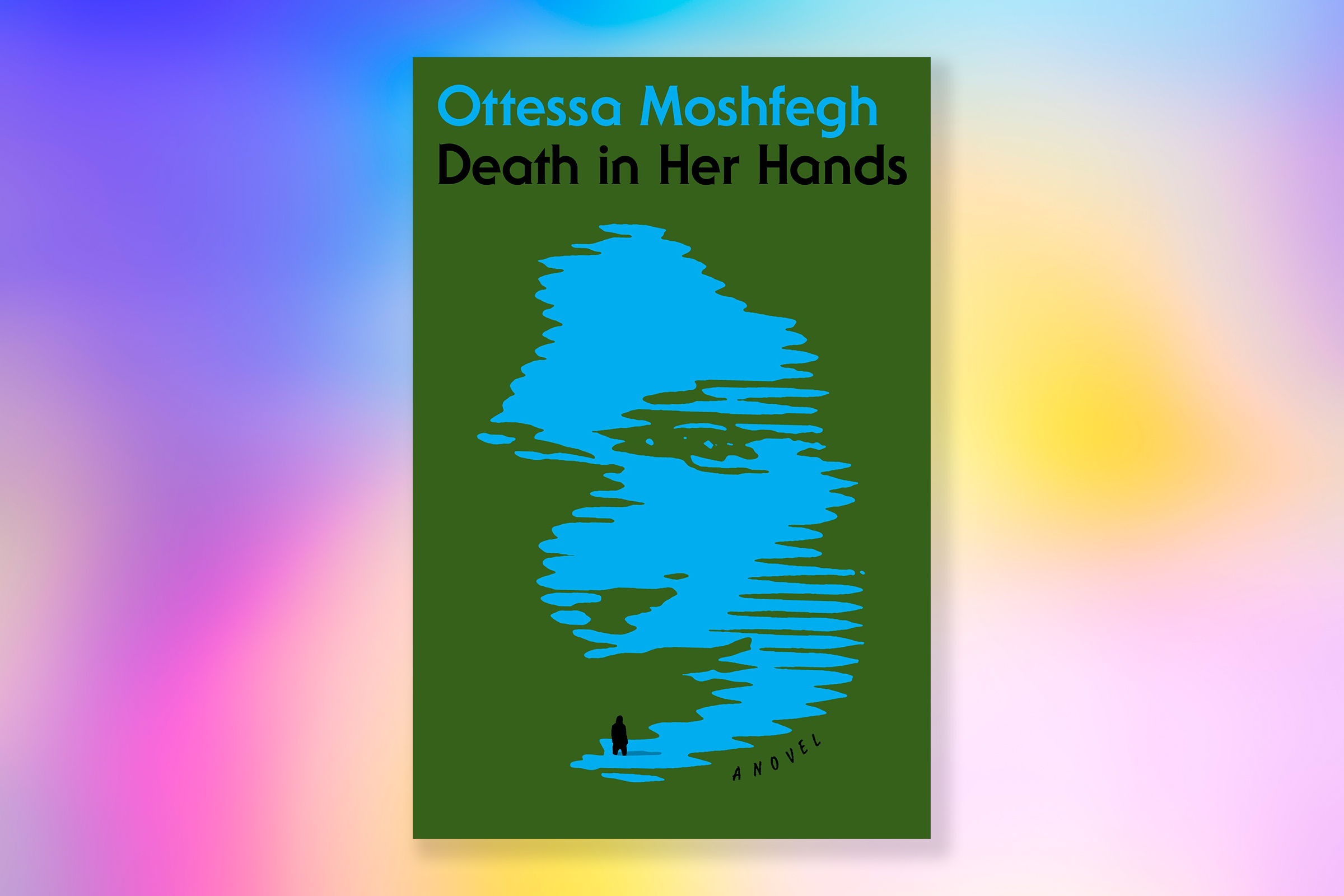
“Is Magda dead?” The question has been haunting 72-year-old Vesta Gul for hours. She’s just typed it in to a search engine on the computer at her local library. Unhelpfully, Ask Jeeves spits back over 600,000 web pages related to the query — but none are of any use to Vesta.
The widowed protagonist of Ottessa Moshfegh’s stirring new novel Death in Her Hands doesn’t know anyone named Magda. But on a recent walk in the woods by her home, Vesta happens upon a curious note that makes several declarations: a woman named Magda has been killed, the killer’s identity remains unknown, and the person who wrote the note did not kill her. The final sentence — “Here is her dead body” — is particularly shocking, because Vesta looks all over and there is no body to be seen.
This missive, which opens Death in Her Hands, propels Moshfegh’s isolated narrator along a darkly funny journey of self-reckoning. Vesta, who moved into a cabin at an old Girl Scout camp with her dog after the death of her husband, is no detective. Her obsessive and increasingly unreliable stream-of-consciousness narrative makes clear that she is both lonely and bored. She latches onto the mystery with every piece of herself, consumed with imagined scenarios of Magda’s murder. Vesta decides, for example, that the note’s author is named Blake: “The name was sneaky and a bit dumb, the kind of boy who would write, It wasn’t me.”
Almost all of Death in Her Hands unfolds in Vesta’s head as she attempts to understand what happened to Magda. Her voice, both strange and assertive, propels the narrative forward. And as her imagination conjures vivid characters and dialogue, it’s easy to slip into Vesta’s conception of reality — that these are all people who are real and have a stake in Magda’s death.
The protagonist of Moshfegh’s third novel has a gloomy personality that mirrors those of the “unlikable” female characters the author of Eileen and My Year of Rest and Relaxation writes so well. Vesta is judgmental. She refuses to give the people around her a chance. When she reads the note that kicks off the novel, she is surprised that someone from her town could have written it: “The words themselves, when I spoke them aloud, seemed witty, a rare quality in Levant, where most people were blue collar and dull.” Initially, the general disdain Vesta feels and the isolation she’s secured for herself harks back to the unnamed narrator of My Year of Rest and Relaxation. But unlike the young woman at the center of that book — which was a finely tuned portrait of privilege, self-loathing and pathological-seclusion — Vesta is desperate for connection.
In a way, her plight echoes the anxieties and frustrations of life under stay-at-home orders. As many of us have wallowed in our own versions of isolation in recent months, time has blurred and loneliness has festered. At one point, Vesta makes a remark that could have been lifted from a COVID-19 quarantine diary: “Each day was like the day before, apart from the dwindling number of bagels, and the varying weather.” Her solitude, which the author captures with both empathy and humor, makes her susceptibility to obsessive thinking all the more believable.
Moshfegh clues her readers in early that this murder mystery may be neither murder nor mystery after all. But that’s ultimately beside the point. As Vesta gets lost in her own imagination, she reveals more about her identity, which she is only now beginning to understand: the heartbreaks of her upbringing, the controlling nature of her late husband and the expectations of life that have been unmet in her older age. Though Death in Her Hands can be studied for prescient insights into life in 2020, the stories that Vesta tells herself give it a timeless quality. Sometimes, there are healing powers in fantasy.
More Must-Reads from TIME
- Donald Trump Is TIME's 2024 Person of the Year
- TIME’s Top 10 Photos of 2024
- Why Gen Z Is Drinking Less
- The Best Movies About Cooking
- Why Is Anxiety Worse at Night?
- A Head-to-Toe Guide to Treating Dry Skin
- Why Street Cats Are Taking Over Urban Neighborhoods
- Column: Jimmy Carter’s Global Legacy Was Moral Clarity
Write to Annabel Gutterman at annabel.gutterman@time.com